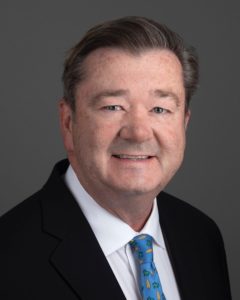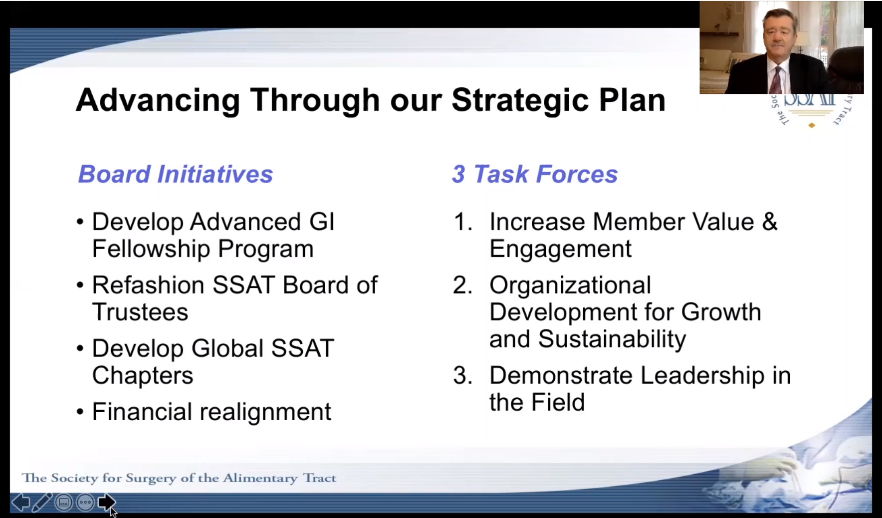
This year’s SSAT Presidential Plenary highlighted presentations that reflect the wide range of recent clinical innovations and successful outcomes of surgery for the gastrointestinal tract, liver and pancreas, both in the United States and abroad.
“Each SSAT President enjoys the terrific opportunity to select standout papers for our two Presidential Plenary sessions,” said current SSAT President Mark P. Callery, MD, of Harvard Medical School. “This year, four in particular aligned with leadership objectives that I highlighted in my Presidential Address as ‘SSAT Pillars for Success.’”
The four presentations included the following:
- “Black patients suffer significantly higher adverse events from bariatric surgery despite better 30-day decrease in BMI – an analysis of the MBSAQIP Data Registry” presented by Dilhana Badurdeen, MD, MBBS, of Johns Hopkins Hospital. Badurdeen’s presentation revealed that, despite better early weight loss, Black patients have higher risks of serious morbidity and adverse events regardless of baseline comorbidities or type of bariatric surgery. These findings contribute to growing evidence that “disparities in healthcare access and delivery exist for minority populations and drive worse clinical outcomes in both acute and elective settings,” noted SSAT Program Chair Michael G. House, MD, of Indiana University School of Medicine.
- “Disparities in use of surgical treatments mediate half of socioeconomic survival disparities in stage I-II hepatocellular carcinoma” presented by Douglas Swords, MD, of The University of Texas MD Anderson Cancer Center. Using causal mediation analysis, Dr. Swords showed that disparities in the use of surgery against GI cancer negatively drive disparities in actual survival. Moreover, this presentation suggested that “treatment disparities mediate a higher percent of survival disparities in low socioeconomic Black and Hispanic patients because they fundamentally have lower rates of surgery, especially transplantation, in hepatocellular carcinoma compared with low socioeconomic White patients,” according to Dr. Callery.
- “Decision-making and practice habits from international master surgeons regarding postoperative drain management and treatment of pancreatic fistula following pancreatoduodenectomy” presented by Fabio Casciani, MD, of Hospital of the University of Pennsylvania and University of Verona. This talk offered practical, tangible insights from global authorities from 22 countries regarding postoperative management decision points regarding the post-pancreatectomy complication of fistula. “This is a very rare type of study in today’s GI disease literature,” said Dr. Callery.
- “Comparison of adapted enhanced recovery after surgery pathways versus standard care in patients undergoing emergency laparotomy for perforation peritonitis – a randomized controlled trial” presented by Pranavi Ravichandar, MD, of the Jawaharlal Institute of Postgraduate Medical Education and Research. This presentation described outcomes from a randomized controlled trial for a difficult patient population in a high-acuity clinical setting that researchers accomplished in only 2 years.




